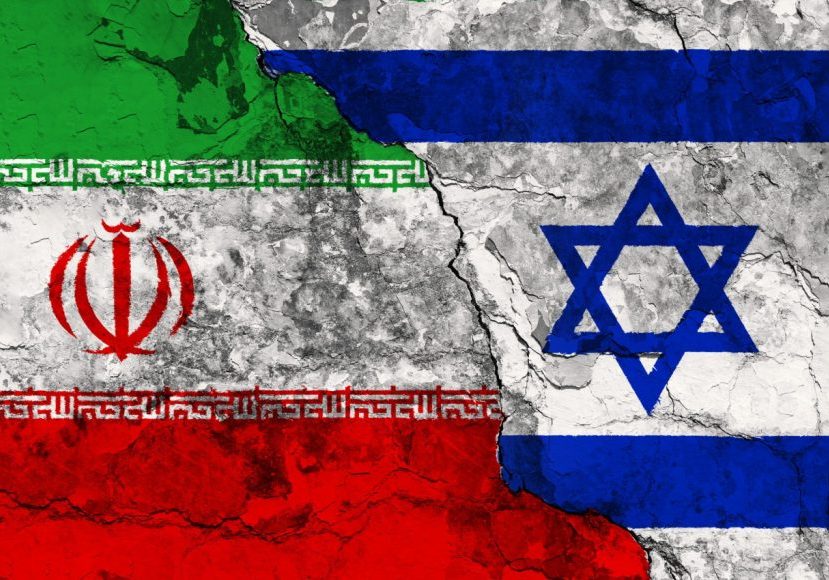IN THE MEDIA
An opportunity to fix a flawed deal
Nov 3, 2017 | Shmuel Levin

Shmuel Levin
An edited version of this article appeared in The West Australian – 3 November 2017
On October 13, US President Donald Trump announced that the White House will no longer certify to Congress that the Iran nuclear deal – signed in 2015 – is in the US national interest.
While this does not mean the US is pulling out of the deal – certification is a requirement under US domestic law and has nothing to do with the agreement’s terms as such – it does mean the Trump Administration is determined to re-orient US strategy toward Iran.
Meanwhile, even those who argue in favour of the deal, known as the Joint Comprehensive Program of Action (JCPOA), increasingly acknowledge that it is seriously flawed.
First, the deal contains “sunset clauses” under which restrictions on Iran’s nuclear program will automatically be lifted in 10-15 years. After that time, Iran, the world’s foremost state sponsor of terrorism and a rogue actor that is aggressively destabilising the Middle East region, will emerge stronger than ever as a result of the deal.
During this time, the deal allows Iran to continue developing advanced centrifuges which can enrich uranium at a much greater efficiency than ever before. This will greatly reduce Iran’s breakout time to obtaining a nuclear weapon once the deal expires. Even former US President Barack Obama, who negotiated the deal, conceded in 2015 that, as a result of those centrifuges, Iran’s “breakout times would have shrunk almost down to zero” once the deal’s sunset clauses kick in.
The deal also completely ignores Iran’s ballistic missile activities, even though delivery systems, such as missiles, are a central part of any nuclear program. Since the nuclear deal was signed, the US, Britain, France and Germany have jointly accused Iran of repeatedly carrying out missile tests in defiance of the very UN resolutions that underpin the agreement.
In other words, this JCPOA does not halt Iran’s nuclear weapons program – in terms of the development of advanced centrifuges and missile testing, it permits Iran to continue to make major strides toward a full blown nuclear arsenal.
The deal has already given Iran tens of billions of dollars in previously frozen funds and the Iranian regime is using these funds to ramp up its destabilising regional activities. Iranian proxies are active in Lebanon, Iraq, Syria, and Yemen, and Iran’s parliament recently increased the budget of its foreign fighters by hundreds of millions of dollars.
Furthermore, the only penalty that can be implemented for violations of the JCPOA is the full re-imposition of sanctions – which automatically ends all restrictions on Iran under the agreement. This has been compared to a legal system with only one punishment – the death penalty – for every crime. The obvious result is that most crimes go unpunished.
It is true that the International Atomic Energy Agency has stated that Iran is apparently in compliance with the deal at the moment.
However, this fails to account for the fact that Iran’s military sites – where most nuclear weapons design work would presumably occur – remain off-limits to inspectors, and Iran has repeatedly sworn that no access will be given to them.
Many of these issues have clear fixes which the international community should be negotiating. Several, such as creating penalties for deal violations or missile launches, or putting plans in place for when the JCPOA sunset clauses kick in, would not necessarily require Iranian consent.
French President Emmanuel Macron has stated that although the deal should remain, it is insufficient in its current form, given Iran’s ballistic missile tests and its destabilising regional activities. He has also said the international community should discuss addressing the deal’s sunset clauses.
Renegotiating arms control frameworks is not without precedent. In the 1980s, the Reagan Administration rejected the Carter Administration’s SALT-2 treaty with the USSR and negotiated the tougher START treaty instead, which actually did more to reduce the nuclear arsenals of both sides.
Even if the current deal is kept, it urgently needs to be supplemented by additional measures that address its fundamental limitations. The strong stance taken by the Trump Administration provides an opportunity for the international community to begin addressing the serious flaws and gaps in the JCPOA agreement.
Shmuel Levin is a policy analyst at the Australia/Israel & Jewish Affairs Council
Tags: International Security, Iran, JCPOA











